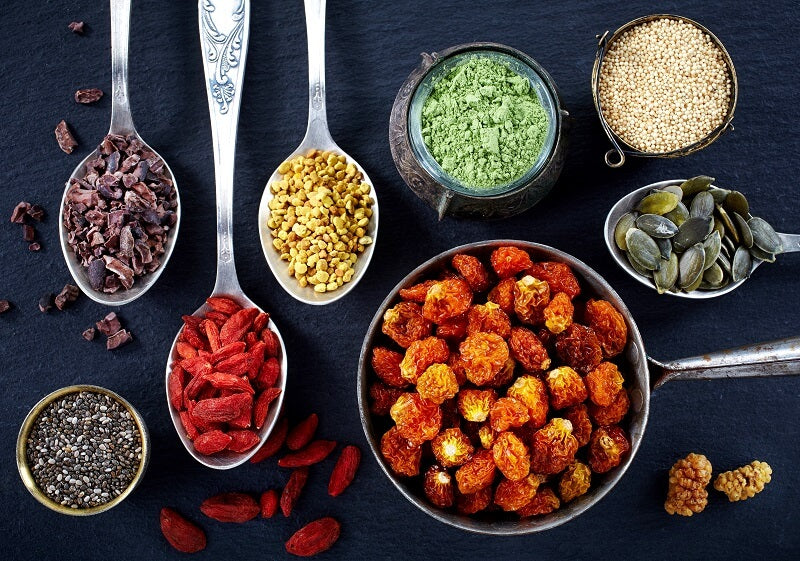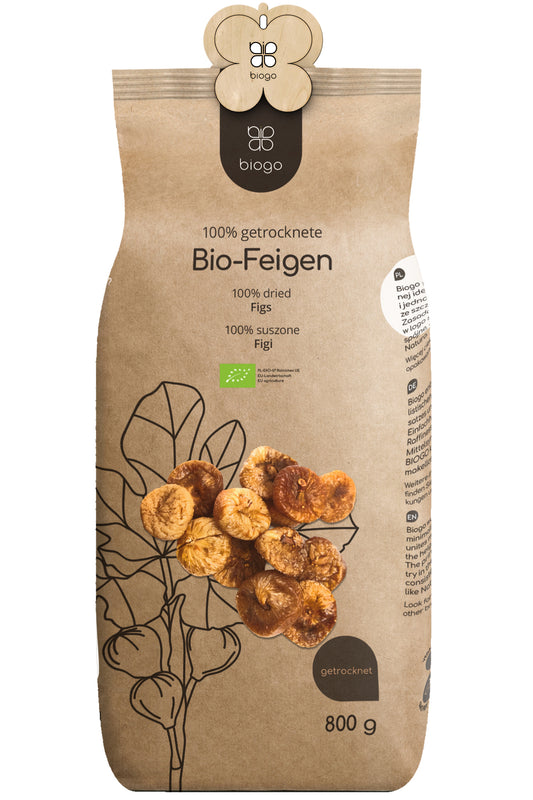"Superfood," or superfoods in English, is a word that's been repeated so often lately that it's almost lost any real meaning. Assuming, of course, that meaning ever existed, because there's really no precise definition of what makes a product "great."
We can't determine exactly what properties, nutrients, or whatever it is that make ordinary foods superfoods: But does that mean that all claims about the extraordinary benefits of certain foods are just sham and empty marketing? Not necessarily!
Where do superfoods come from?
The term "superfood" appears relatively frequently at the beginning of the long-standing fashion for a healthy lifestyle. As we began to look more closely at what we eat, some people have concluded that among the foods - both common and everyday, such as blueberries, cacao, beets and spinach - and those that are still niche products, such as goji berries and acai , young barley , milk thistle - a group of products can be distinguished whose nutritional value and health-promoting properties are significantly superior to the others: at least apparently, because, as we have already established, there are no objective criteria for measuring which food is ordinary and which is "great." Soon, the term "superfoods" was coined (hyperlink "https://biogo.pl/super-jedzenie"; Alan Moss is credited with coining the term in the journal Nature Nutrition in 1998), and... the world went crazy for superfoods.
Are there no superfoods?
According to the British organization Cancer Research UK, the term "superfood" is just a marketing ploy that has nothing to do with the actual nutritional value of the product. However, a slightly exaggerated use of this term does not mean that products with a significant nutrient density - that is, with an extremely favorable ratio of the vitamins and minerals they contain to volume or energy value - do not exist or are really not worth paying special attention to when compiling a menu. On the contrary: including them in the daily diet has a number of beneficial effects and is recommended by nutritionists and doctors.
Where do you look for superfoods?
It would be great if we could base our diets on just a few, maybe a dozen, superfoods and never worry about deficiencies or disease again. And while some studies show that certain food ingredients—for example, antioxidants like lycopene (found in tomatoes) or resveratrol (in wine)—are extremely beneficial to health, they cannot replace a varied, balanced diet.
However, it's definitely worth adding superfoods as a supplement: sprinkle goji berries on oatmeal, replace rapeseed oil with healthy coconut oil, add a spoonful of spirulina to a fruit cocktail, or sprinkle chia seeds on a salad. However, keep in mind that these are only a supplement to your diet, a kind of health booster, and not the basis of it!
THE PUBLISHER'S CHOICE
Dried dates 1 kg BIOGO
- €4,21
€4,95- €4,21
- Unit price
- / per
Almonds 1 kg BIOGO
- €11,69
€13,75- €11,69
- Unit price
- / per
Peeled sunflower seeds 1 kg BIOGO
- €3,04
€3,57- €3,04
- Unit price
- / per
Dried organic mango 400 g BIOGO
- €10,99
- €10,99
- Unit price
- / per
Dried White Mulberries 500 g ORGANIC
- €5,84
€6,87- €5,84
- Unit price
- / per
Popcorn (corn kernels) organic 1 kg BIOGO
- €5,84
- €5,84
- Unit price
- / per
Organic Ground Turmeric 500 g BIOGO
- €5,92
- €5,92
- Unit price
- / per
Milk thistle seeds 1 kg BIOGO
- €3,99
- €3,99
- Unit price
- / per
Dried organic figs 800 g BIOGO
- €30,12
- €30,12
- Unit price
- / per
Bag #changezbiogo Cotton v.2
- €3,27
- €3,27
- Unit price
- / per






































































































































